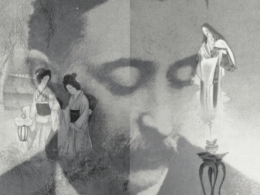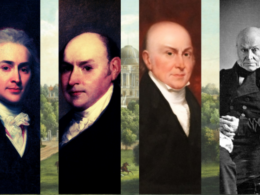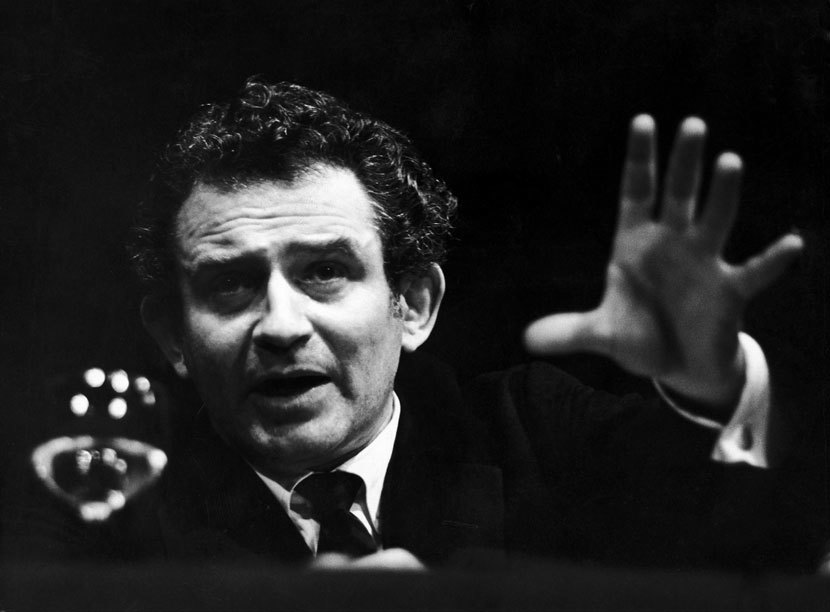
Published this month by Library of America, Norman Mailer: The Sixties is a double dose of the trenchant writer who—in his fiction, his nonfiction, and in work that famously blurred the distinction between the two—threw himself unreservedly into the most tumultuous era in modern American history.
Norman Mailer: Four Books of the 1960s presents two disruptive, still-polarizing novels and two radically innovative journalistic masterpieces—An American Dream, Why Are We in Vietnam?, The Armies of the Night, and Miami and the Siege of Chicago—in one volume for the first time. Its companion volume, Norman Mailer: Collected Essays of the 1960s, collects thirty-three electric essays on virtually every aspect of contemporary American culture and society, from politics and boxing to architecture, technology, and the art of writing.
Both volumes are edited by J. Michael Lennon, emeritus professor of English at Wilkes University and Norman Mailer’s archivist, editor, and authorized biographer. His books include Norman Mailer: A Double Life (2013) and Selected Letters of Norman Mailer (2014). Via email, Lennon answered our questions from his home in Massachusetts.
Library of America: Norman Mailer: The Sixties, a two-volume boxed set, makes the case that this decade was central to Mailer’s career. Why were the Sixties so conducive to his particular gifts?
J. Michael Lennon: Mailer was prescient about the events and tensions of the ’60s. Earlier than most, he foresaw the nation turning against the Vietnam War, the surging of the environmental movement, and the evolving ways in which celebrities and politicians were using and being used by the media. He was one of the inventors of the New Journalism, publishing long pieces in all the major publications of the day, profiling politicians, prizefighters, and movie stars. He also changed the rules of television decorum in his appearances on virtually every major U.S. talk show.
In short, he occupied a central position at that special junction where literature, journalism, politics, sports, and show business intersected during one of the most turbulent decades in American history. It was during the early ’60s that he began describing himself as a “left-conservative,” which was one of his methods of keeping in touch with all parts of a fractured country. Who else could call both William F. Buckley, Jr., and Abbie Hoffman close friends?
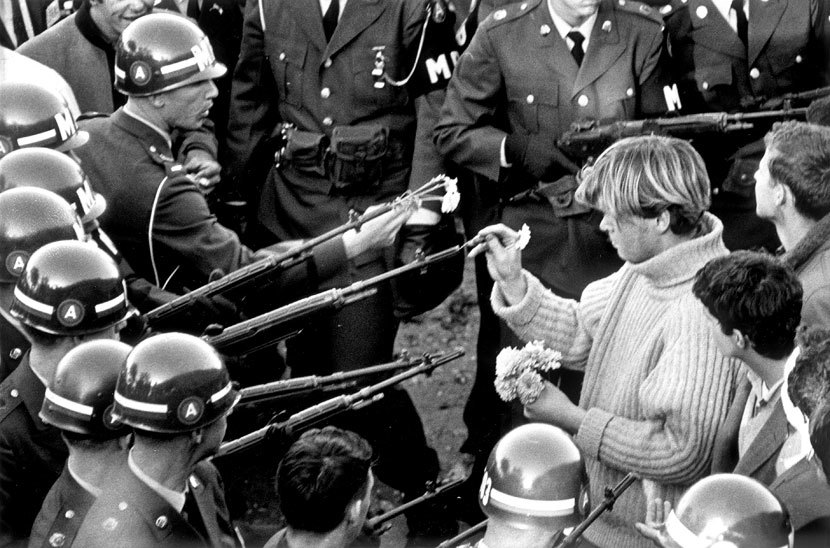
LOA: Although New Journalism is commonly associated with a period in the 1960s and ’70s, The Armies of the Night now seems like part of a much longer arc—extending into the later age of memoir—in which American nonfiction writing drew more and more on the resources and techniques of fiction. What was Mailer’s role in that trend, and why is The Armies of the Night such a milestone?
Lennon: Mailer’s Armies, a re-drawing of the generic lines separating the personal memoir, political journalism, the modern novel, and narrative history, is also an elegant jeremiad that helped force President Johnson’s withdrawal from politics and hasten the end of the war. It resembles in some ways the unsparing self-examinations undertaken by the Puritans, Emerson, Whitman, and Henry Adams but, ultimately, like Mailer himself, Armies is singular, unclassifiable, unprecedented.
LOA: In these two volumes, Mailer regularly seems to anticipate America’s current moment of extreme polarization. In a 1962 essay he writes, “there was a fanatic rage in much too much of the population,” and in Miami and the Siege of Chicago (1968) he suggests that Americans “will be fighting for forty years.” What did he know about us?
Lennon: Mailer, like Henry Adams, recognized the permanent cleft in the American character—imperial ambitions on the one side, compassionate democracy on the other. And like Martin Luther King, Jr., he believed the parlous situation of African Americans was a smoldering fire that would flash up again and again until they were fully integrated into American society. He brooded about all this, as well as unchecked technology (itself the creation of unchecked corporate greed), and knew that these issues created oppositions that would not be easily dissolved or placated; the roots were too deep.
LOA: As a public reckoning with America’s gun culture unfolds right now, the catalog of lethal weaponry in “Chap Five” of Why Are We in Vietnam? might seem especially pertinent and provocative. What is Mailer up to in this sequence, and indeed in this novel as a whole? (It’s arguably his most experimental work.)
Lennon: It is his most experimental novel, and its twin narrators, D.J., a privileged white kid from Texas and a jazzed-up black disc jockey, presage the double self that Mailer will employ a year later in Armies. The arsenal of heavy caliber rifles and the numerous wild animals that are slaughtered comprise an avatar for the carpet bombing, defoliation, napalm, etc. employed in the slaughter of millions of Vietnamese. The depth of Mailer’s fears about American imperialism can be gauged by the novel’s conclusion: D.J. signs up to fight in the Vietnam War, gleefully signs up.
LOA: Beginning with the first pieces in Collected Essays of the 1960s, it’s clear Mailer—perhaps more than any other literary intellectual of his generation—understood the increasing significance of celebrity in American public life. What made him so attuned to this subject?
Lennon: Mailer said that celebrity was thrust on him overnight when in May 1948 The Naked and The Dead became the number one best seller. He was not prepared for it, but learned to deal with it, relish it, despise it, and miss it when it faded in his later years. He studied the nuances of celebrity. So he felt he knew what Marilyn Monroe, Muhammad Ali, and Picasso went through in the passage from obscurity to fame. He knew fame’s lures, delusions, perks, and miseries, and his introspections gave him insights into the lives of superstars unavailable to most other writers.
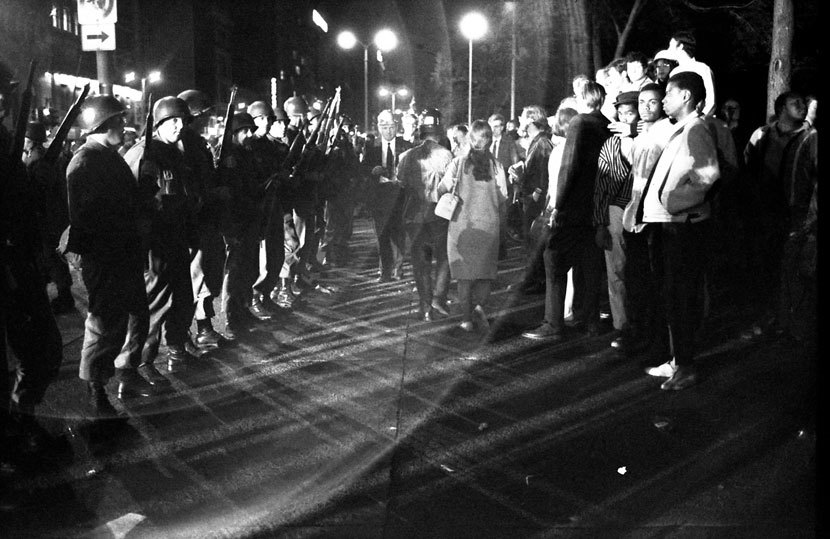
LOA: Collected Essays of the 1960s distills three books published between 1963 and 1972: The Presidential Papers (1963), Cannibals and Christians (1966), and Existential Errands (1972). What criteria guided your selections? Do you have a favorite among the pieces gathered here?
Lennon: [Former Library of America Editor-in-Chief] Geoffrey O’Brien, a terrific editor, and I had some thoughtful discussions on inclusion. The quality of the prose in the thirty-three essays was one criterion; the varied techniques used to explore the events, issues, or persons depicted was another. Many, indeed most, of the essays delivered insights on aspects of the American character that are still useful, illuminating. We were drawn to those that got down under the topical, searched for a deeper water.
LOA: In his 1972 critical study of Mailer, Library of America co-founder Richard Poirier wrote that “It is all but impossible to have a peaceful or casual response to his writing.” Do you agree? What is it about Mailer’s work that might prompt such a comment?
Lennon: Mailer has a forceful style, an urgent style; he is always putting the uncomfortable, tough questions on the table. He didn’t go in for fancy evasions. He didn’t have all the answers, not at all, but he was forever in search of better, sharper questions. Identity and ambition were his personal lodestars, and this alienated many, but others like me cheered his refusal to paper over intractable problems, to go away quietly, to shut up.
Related audio:
J. Michael Lennon talks to WVIA Public Media about Norman Mailer: The Sixties on March 27, 2018.
